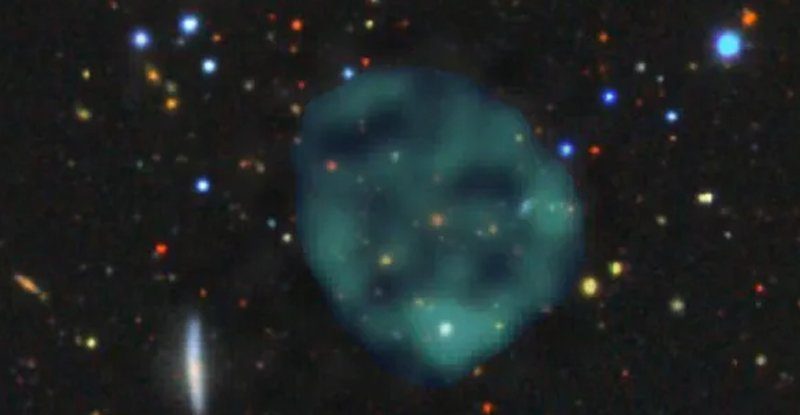ASTRONOMERS have been mystified by faint rings of radio emission uncovered by faraway galaxies.
The radio rings, known as odd radio circles, or ORCs, were first discovered in deep space in 2019.
ORCs are so massive that entire galaxies live within their centers – one ORC is over 50 thousand times the diameter of our Milky Way.
Moreover, they span hundreds of thousands of light-years and are detected via radio wavelengths.
This means the space objects are not visible at infrared or X-ray wavelengths – like other known massive phenomena.
And now, a new study published in the journal Nature has proposed a theory for what causes the ghostly circles.
They might be the result of powerful galactic winds generated by the rapid formation and death of massive stars in a starburst galaxy.
“These galaxies are really interesting,” explains astrophysicist Alison Coil of the University of California San Diego, who led the research.
“They occur when two big galaxies collide. The merger pushes all the gas into a very small region, which causes an intense burst of star formation,” he added.
“Massive stars burn out quickly and when they die, they expel their gas as outflowing winds.”
Most read in News Tech
In turn, this gas may get caught up in galactic winds that create a spherical outflow, the study suggests.
This manifests itself into massive shockfronts, or shells that linger for a while – though it’s unclear exactly how long.
“It turns out the galaxies we’ve been studying have these high-mass outflow rates,” said Coil.
“They’re rare, but they do exist. I really do think this points to ORCs originating from some kind of outflowing galactic winds,” he added.
Of course, researchers have come up with many theories to determine the cause of ORCs.
Including the space rings being the result of massive cosmic collisions.









